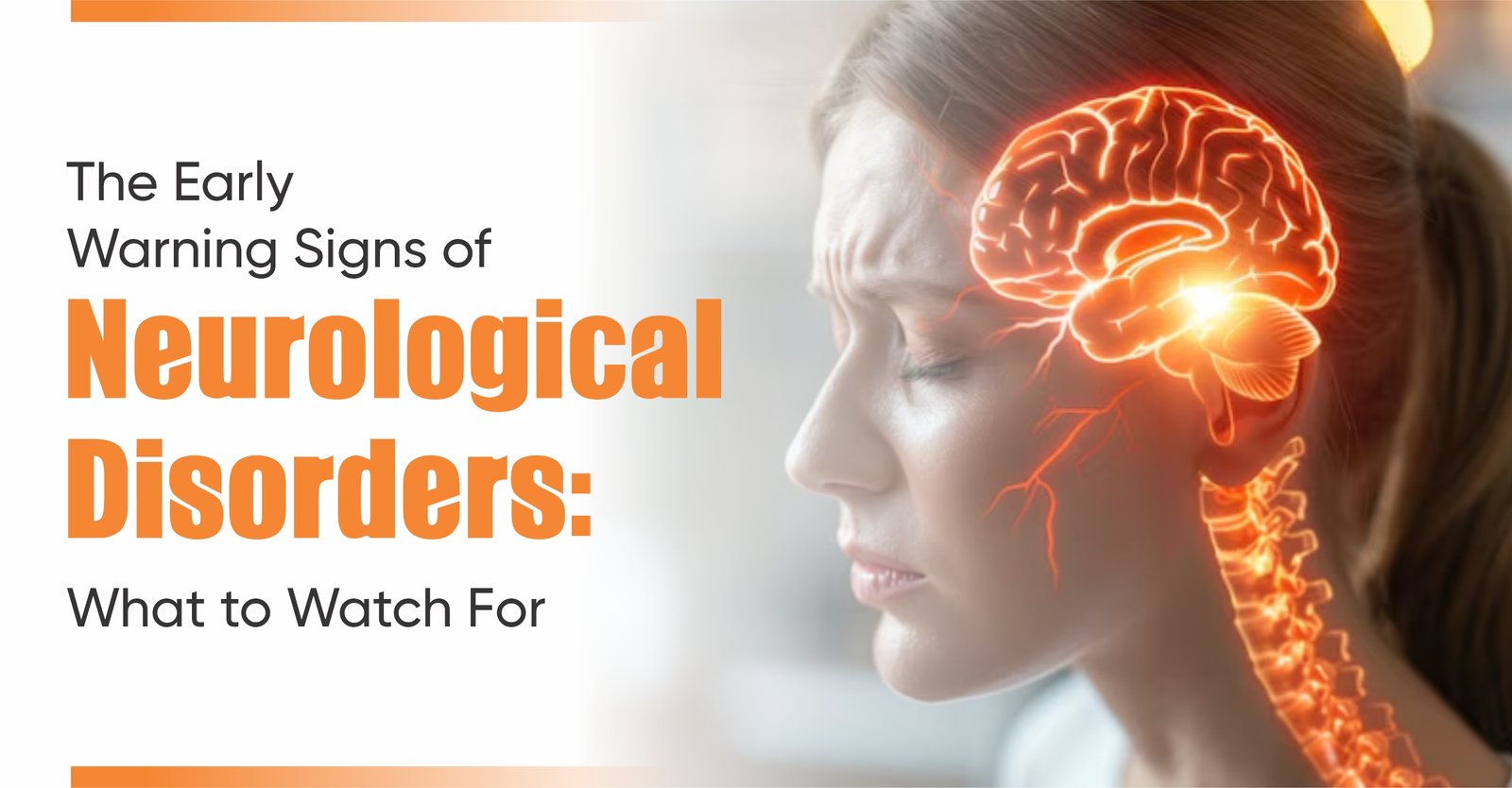
The Early Warning Signs of Neurological Disorders: What to Watch For
Neurological disorders can profoundly impact a person’s life, often presenting subtly before progressing. Recognizing these early signs can lead to timely interventions, better management, and improved outcomes. As a neurologist at Max Hospital, Vaishali, I, Dr. Kamakshi Dhamija, aim to educate individuals about these critical signs to promote early detection and proactive care.
Understanding Neurological Disorders
Neurological disorders encompass a wide range of conditions that affect the brain, spinal cord, and nerves. These disorders can result from genetics, trauma, infections, or degenerative processes. Common examples include epilepsy, Alzheimer’s disease, Parkinson’s disease, multiple sclerosis, and stroke.
Why Early Detection Matters
Early diagnosis plays a pivotal role in managing these conditions. It enables doctors to slow disease progression, alleviate symptoms, and improve the quality of life. Patients who recognize symptoms early often have access to more treatment options.
Early Warning Signs of Neurological Disorders
1. Persistent Headaches: Frequent, intense, or unusual headaches that disrupt daily activities can indicate an underlying neurological issue, such as migraines, brain tumors, or even aneurysms. Seek medical attention if headaches worsen over time or are accompanied by other symptoms like vomiting or visual disturbances.
2. Memory Loss or Confusion: Mild forgetfulness is common, especially with age, but persistent memory loss or confusion could be an early sign of Alzheimer’s or other forms of dementia. Difficulty concentrating or disorientation warrants professional evaluation.
3.Unexplained Fatigue: Chronic fatigue not linked to lifestyle factors can indicate multiple sclerosis, sleep disorders, or other neurological conditions. It’s essential to investigate prolonged exhaustion that interferes with daily functioning.
4. Weakness or Loss of Coordination: Sudden or gradual muscle weakness, difficulty walking, or loss of coordination can signal conditions such as Parkinson’s disease, stroke, or nerve damage. Immediate attention is vital for such symptoms.
5. Speech and Language Difficulties: Speech impairments, slurred words, or trouble finding the right words may indicate a stroke, traumatic brain injury, or other neurological conditions.
6. Vision Changes: Blurred or double vision, loss of peripheral vision, or sudden blindness may be linked to conditions such as optic neuritis, brain tumors, or stroke.
7. Numbness or Tingling: A feeling of pins and needles or numbness, especially on one side of the body, can signal nerve damage, stroke, or multiple sclerosis. Pay attention to persistent or recurring symptoms.
8. Seizures: Seizures are among the most recognizable signs of a neurological disorder, often linked to epilepsy or traumatic brain injuries. Even a single unexplained seizure requires medical evaluation.
Spotlight on Common Neurological Disorders
- Epilepsy: Epilepsy is characterized by recurrent seizures caused by abnormal electrical activity in the brain. Early signs include sudden staring spells, repetitive movements, or unusual sensations.
- Alzheimer’s Disease: Alzheimer’s begins with subtle memory lapses and confusion. Early symptoms often include difficulty performing familiar tasks or recognizing people.
- Parkinson’s Disease: Parkinson’s symptoms include tremors, rigidity, and bradykinesia (slowness of movement). Early signs can be as subtle as a slight tremor in one hand or changes in handwriting.
- Multiple Sclerosis (MS): MS is an autoimmune disease affecting the central nervous system. Early symptoms include numbness, fatigue, and vision problems.
When to Seek Medical Help
Act Fast During a Stroke
A stroke is a medical emergency. Remember the acronym FAST:
- Face drooping
- Arm weakness
- Speech difficulty
- Time to call emergency services
Monitor Gradual Symptoms
For conditions like Parkinson’s or Alzheimer’s, track symptoms over weeks or months. Keep a journal to note changes, which can assist in early diagnosis.
How Neurologists Diagnose Neurological Disorders
- Clinical Examination: A neurologist begins with a comprehensive physical and neurological exam, assessing reflexes, strength, coordination, and sensory responses.
- Imaging Studies: Techniques like MRI, CT scans, and PET scans are used to visualize abnormalities in the brain and spinal cord.
- Electrophysiological Tests: EEG (electroencephalography) monitors brain activity, while EMG (electromyography) assesses muscle and nerve function.
- Blood Tests: Blood work can identify infections, genetic markers, or autoimmune responses contributing to neurological symptoms.
Living with Neurological Disorders
- Medication Management: Medications can control symptoms and slow disease progression. For example, levodopa is commonly prescribed for Parkinson’s, while anti-epileptic drugs manage seizures.
- Physical Therapy: Physical therapy helps improve mobility, strength, and balance, significantly benefiting those with multiple sclerosis or after a stroke.
- Cognitive Behavioral Therapy: CBT helps patients manage the emotional toll of chronic conditions, such as depression or anxiety associated with neurological disorders.
Preventing Neurological Disorders
1. Adopt a Brain-Healthy Diet
Diets rich in antioxidants, omega-3 fatty acids, and whole grains support brain health. Consider the Mediterranean diet as an excellent model.
2. Stay Physically Active
Regular exercise enhances blood flow to the brain, reducing the risk of stroke and promoting overall neurological well-being.
3. Manage Chronic Conditions
Control conditions like diabetes and hypertension, which can increase the risk of strokes and other neurological problems.
4. Mental Exercises
Engage in puzzles, reading, and other cognitive activities to maintain brain function and delay the onset of dementia-related conditions.
Conclusion
Recognizing the early warning signs of neurological disorders is the first step toward better health outcomes. At Max Vaishali, Max Hospital, I, Dr. Kamakshi Dhamija, am dedicated to providing expert care and guidance. If you or a loved one experiences any concerning symptoms, don’t hesitate to seek professional advice. Together, we can ensure a healthier and brighter future.